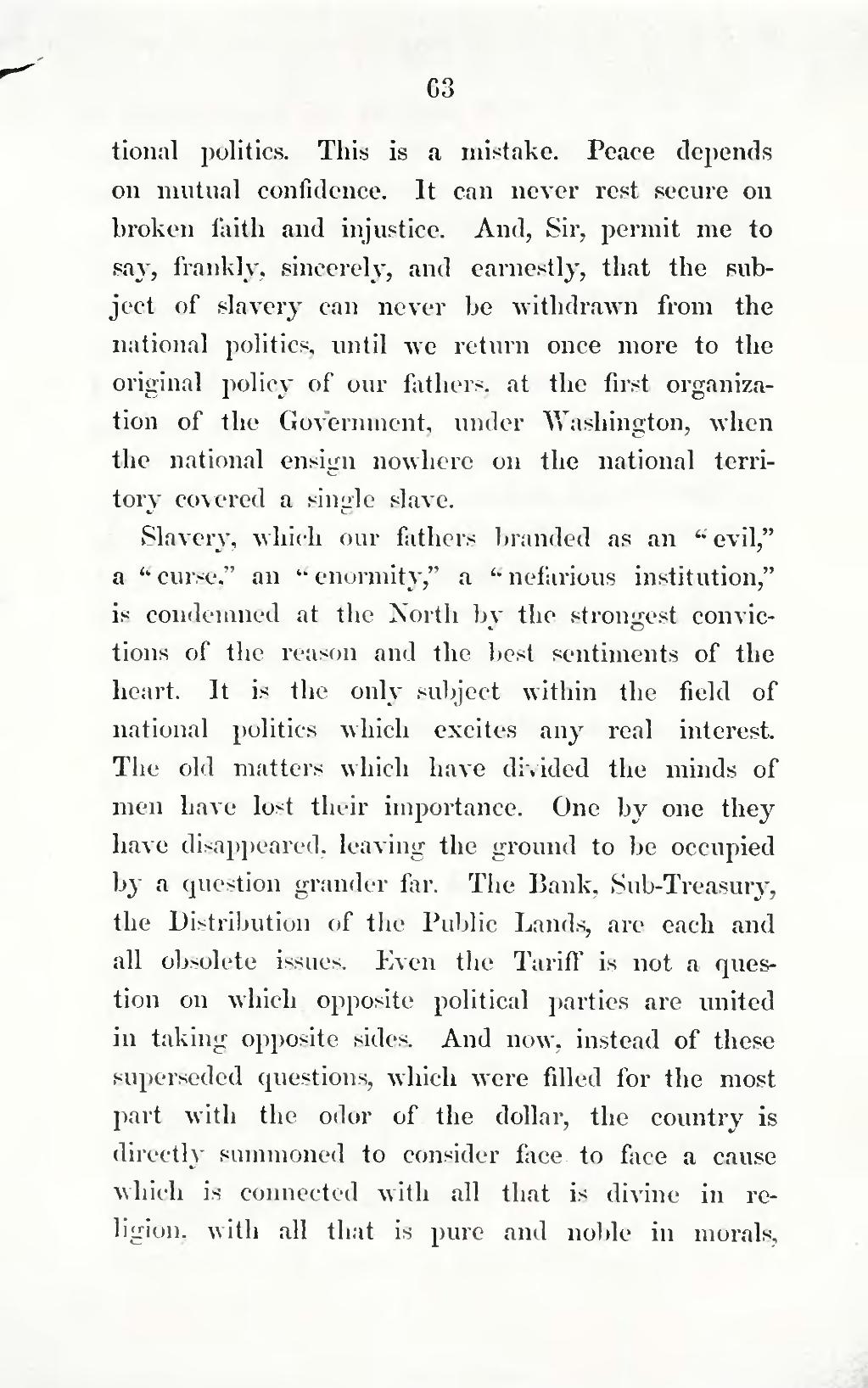tional politics. This is a mistake. Peace depends on mutual confidence. It can never rest secure on broken faith and injustice. And, Sir, permit me to say, frankly, sincerely, and earnestly, that the subject of slavery can never be withdrawn from the national politics, until we return once more to the original policy of our fathers, at the first organization of the Government, under Washington, when the national ensign nowhere on the national territory covered a single slave.
Slavery, which our fathers branded as an "evil," a "curse," an "enormity," a "nefarious institution," is condemned at the North by the strongest convictions of the reason and the best sentiments of the heart. It is the only subject within the field of national politics which excites any real interest. The old matters which have divided the minds of men have lost their importance. One by one they have disappeared, leaving the ground to be occupied by a question grander far. The Bank, Sub-Treasury, the Distribution of the Public Lands, are each and all obsolete issues. Even the Tariff is not a question on which opposite political parties are united in taking opposite sides. And now, instead of these superseded questions, which were filled for the most part with the odor of the dollar, the country is directly summoned to consider face to face a cause which is connected with all that is divine in religion, with all that is pure and noble in morals,
